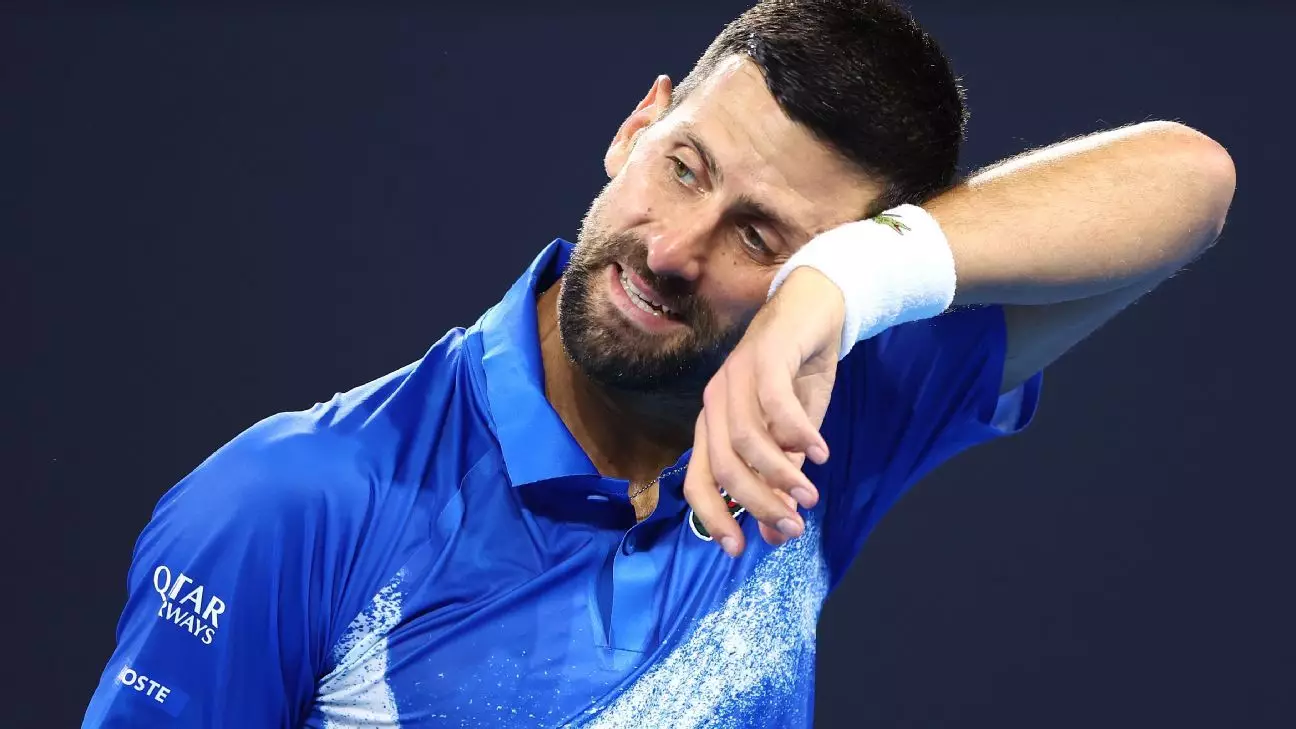Novak Djokovic’s relationship with Melbourne remains intricately complicated, bearing the weight of past tribulations intertwined with current triumphs. The acclaimed tennis player faced severe challenges during the 2022 Australian Open when he was denied entry into Australia due to his unvaccinated status against COVID-19. This experience not only robbed him of the chance to defend his title but also cast a long shadow over his emotional landscape. Now, as he prepares to return to Melbourne, Djokovic has openly discussed the lingering trauma associated with his past experiences.
The year 2022 marked a significant upheaval in Djokovic’s otherwise illustrious career. Though he had previously dominated the Australian Open, his detention in a hotel and subsequent visa revocation were unprecedented events in the world of sports. Winning the tournament during one of the most tumultuous periods added layers of emotional significance to his victory the following year. Yet, the echoes of that legal battle still reverberate within him, evident from his recent admissions regarding his emotional state upon arriving in Melbourne.
Traveling with Emotional Baggage
In a candid conversation with Melbourne’s Herald Sun, Djokovic conveyed his feelings of unease each time he steps into the Australian immigration system. His longing for normalcy is clouded by remnants of fear and uncertainty, both evident as he approaches passport control. The dread of facing potential detainment looms large, marking an emotional scar that he cannot easily dismiss. “The traces still stay there,” he lamented, revealing an unexpected vulnerability in an athlete who often exudes confidence on the court. This sentiment underscores a rarely explored aspect of sports—the psychological toll that public scrutiny and legal entanglements can exert on an individual’s mental well-being.
While acknowledging the emotional burden, Djokovic does not harbor resentment toward Australia or its authorities. His return to the Australian Open the following year—a year when he clinched his 10th title—serves as a testament to his perseverance and ability to overcome adversity. The emotional weight he carries adds depth to his victories, framing them not just as athletic achievements but as personal triumphs over past hardships. The immense support from his family and team during that emotional win only amplified the significance of his journey, reminding fans and critics alike of the human aspects of competitive sports.
As Djokovic gears up for the next Australian Open beginning January 12, he stands at the intersection of past pain and future possibilities. His achievements on the court solidify his legacy as one of the greatest tennis players in history, yet it is the emotional battles that often go unnoticed that shape his identity. As he moves forward, the resolve that once led him to victory over obstacles will be essential, ensuring that the specter of past traumas does not overshadow the bright possibilities ahead. In a world increasingly attentive to mental health, Djokovic’s narrative serves as a powerful reminder of the resilience required to thrive after adversity.

